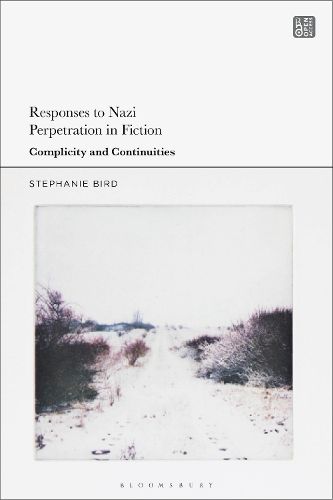Readings Newsletter
Become a Readings Member to make your shopping experience even easier.
Sign in or sign up for free!
You’re not far away from qualifying for FREE standard shipping within Australia
You’ve qualified for FREE standard shipping within Australia
The cart is loading…






Looking at novels by authors from countries directly involved in and affected by genocidal violence and its legacies, this open access book analyses representations of Nazi perpetration and complicity. It considers how these novels challenge our understanding of perpetration and complicity, how they point to different types of complicit involvement that continue into the present, and how they explore the potential for countering complicity.
Literary representations of Nazi perpetrators that give them a voice frequently cause anxiety, fuelled by ethical worry around the fascination exerted by perpetrators, and the sense that enjoyment of their literary representation might be morally inappropriate. This book takes such unease as its starting point.
Focusing on authors and texts from countries directly involved in the genocidal policies of National Socialism: Germany, Yugoslavia, Hungary, Israel and Poland, Stephanie Bird analyses novels that demand our engagement with perpetration and complicity and that question literature's critique of and participation in constructing our understanding of mass violence. The ebook editions of this book are available open access under a CC BY-NC-ND 4.0 licence on bloomsburycollections.com. Open access was funded by UKRI
$9.00 standard shipping within Australia
FREE standard shipping within Australia for orders over $100.00
Express & International shipping calculated at checkout
Looking at novels by authors from countries directly involved in and affected by genocidal violence and its legacies, this open access book analyses representations of Nazi perpetration and complicity. It considers how these novels challenge our understanding of perpetration and complicity, how they point to different types of complicit involvement that continue into the present, and how they explore the potential for countering complicity.
Literary representations of Nazi perpetrators that give them a voice frequently cause anxiety, fuelled by ethical worry around the fascination exerted by perpetrators, and the sense that enjoyment of their literary representation might be morally inappropriate. This book takes such unease as its starting point.
Focusing on authors and texts from countries directly involved in the genocidal policies of National Socialism: Germany, Yugoslavia, Hungary, Israel and Poland, Stephanie Bird analyses novels that demand our engagement with perpetration and complicity and that question literature's critique of and participation in constructing our understanding of mass violence. The ebook editions of this book are available open access under a CC BY-NC-ND 4.0 licence on bloomsburycollections.com. Open access was funded by UKRI